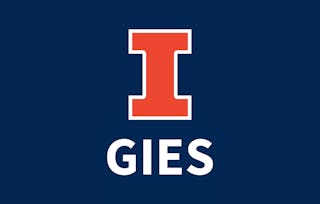In this course, you will learn about the famous dichotomy between active and passive investing, how to appropriately measure and analyze investment performance and what the future trends in the investment management industry are.

Gain next-level skills with Coursera Plus for $199 (regularly $399). Save now.

Securing Investment Returns in the Long Run
This course is part of Investment Management Specialization



Instructors: Tony Berrada
36,861 already enrolled
Included with
(1,198 reviews)
Skills you'll gain
Details to know

Add to your LinkedIn profile
4 assignments
See how employees at top companies are mastering in-demand skills

Build your subject-matter expertise
- Learn new concepts from industry experts
- Gain a foundational understanding of a subject or tool
- Develop job-relevant skills with hands-on projects
- Earn a shareable career certificate

There are 4 modules in this course
Welcome to the course and this introductory module! After reviewing some mistakes you will no longer make after following this course and some useful things to know before the course, we will dive into one of the main topics of this course: the active versus passive investment management debate.
What's included
9 videos1 reading1 assignment1 discussion prompt
Welcome to the second module of the course! Here, we will start by talking about absolute versus relative performance and mandates. The second topic of this module will be performance measurement using risk-adjusted performance ratios but also asset pricing models. Finally, we will see how to decompose and attribute performance between the different types of investment decisions undertaken by fund managers.
What's included
10 videos1 assignment1 discussion prompt
Welcome to the third module of the course! In this module, we will explore the worlds of active and passive funds and try to address whether or not active fund management provides added value to a portfolio. But before doing so, we will see how to choose the best investment vehicles among both active and passive funds. The module ends with a discussion with our corporate partner on topics that often divides the world of finance between academia on one side and practitioners on the other.
What's included
12 videos1 assignment1 discussion prompt
Welcome to the fourth and last module of the course! This module is dedicated to future trends in investment management that are already starting to change how we think about and apply some of the ideas presented in the specialization. We will start with sustainable investing: defining it, examining its value proposition and see how it can be implemented in the context of a widely diversified portfolio. We will then take a quick look at what neurofinance is and how it can help us make better investment decisions. Finally, we will leave you with some insights as to how fintech (i.e. information technology solutions applied to finance) is likely to shape the future of the investment management industry.
What's included
12 videos1 assignment1 discussion prompt
Earn a career certificate
Add this credential to your LinkedIn profile, resume, or CV. Share it on social media and in your performance review.
Instructors

Offered by
Explore more from Finance
 Status: Free Trial
Status: Free TrialUniversity of Illinois Urbana-Champaign
 Status: Free Trial
Status: Free TrialUniversity of Illinois Urbana-Champaign
 Status: Free Trial
Status: Free TrialRice University
 Status: Free Trial
Status: Free TrialDuke University
Why people choose Coursera for their career




Learner reviews
1,198 reviews
- 5 stars
80.46%
- 4 stars
16.69%
- 3 stars
2.25%
- 2 stars
0.50%
- 1 star
0.08%
Showing 3 of 1198
Reviewed on Sep 16, 2016
I recommend this course for every one interested to understand the dynamics of financial markets and the future trends of financial markets and portfolio management
Reviewed on Dec 30, 2020
great course, btw dr michel girardin is an excellent instructor and i appreciate his funny jokes and examples.
Reviewed on Feb 12, 2017
Highly in depth and qualified lecturers who do brilliantly to break concepts down, especially Michel Girardin. Congratulations and thanks to all the staff involved
Frequently asked questions
To access the course materials, assignments and to earn a Certificate, you will need to purchase the Certificate experience when you enroll in a course. You can try a Free Trial instead, or apply for Financial Aid. The course may offer 'Full Course, No Certificate' instead. This option lets you see all course materials, submit required assessments, and get a final grade. This also means that you will not be able to purchase a Certificate experience.
When you enroll in the course, you get access to all of the courses in the Specialization, and you earn a certificate when you complete the work. Your electronic Certificate will be added to your Accomplishments page - from there, you can print your Certificate or add it to your LinkedIn profile.
Yes. In select learning programs, you can apply for financial aid or a scholarship if you can’t afford the enrollment fee. If fin aid or scholarship is available for your learning program selection, you’ll find a link to apply on the description page.
More questions
Financial aid available,











